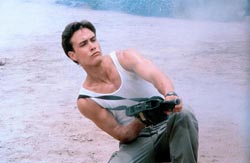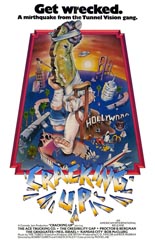
 From 1983, the Jerry Lewis comedy Cracking Up is not to be confused with this other comedy titled Cracking Up. Whereas Lewis’ picture centers on a man with a plan to commit suicide, this 1977 sketch movie merely places all suicidal thoughts in the viewer.
From 1983, the Jerry Lewis comedy Cracking Up is not to be confused with this other comedy titled Cracking Up. Whereas Lewis’ picture centers on a man with a plan to commit suicide, this 1977 sketch movie merely places all suicidal thoughts in the viewer.
Distributed by AIP, the Rowby Goren/Chuck Staley joint finds Channel 8 news reporters Walter Concrete and Barbara Halters (Firesign Theatre co-founders Phil Proctor and Peter Bergman, respectively) reporting live from the scene of what’s left after the world’s worst quake, measuring 9.7 on the Richter scale, levels California. They interview the people they encounter on the decimated city streets, allowing the movie to segue into unrelated sketches transferred from videotape and having nothing to do with the disaster. Starring in these ugly bits are members of such improv troupes as The Credibility Gap and The Ace Trucking Company, whose rosters included such now-familiar, then-unknown faces as Fred Willard, Harry Shearer, Michael McKean and David L. Lander.
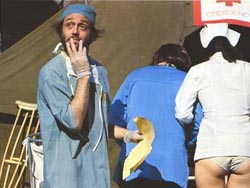 Judging solely by the skits, each measuring 0.0 on the laughter scale, no one would predict actual showbiz careers were in store for any of the performers. Although for years, McKean and Lander made for a popular duo as Lenny and Squiggy on TV’s Laverne & Shirley, they stun the viewer into silence with a humorless Polish talk-show parody. Lander and Shearer attempt to update Abbott and Costello’s legendary “Who’s on First?” routine with discussion of a concert lineup featuring The Who, The Guess Who and Yes. One can see Willard trying in vain to liven up shit scripts (if scripts existed) on an overenthusiastic diner staff and an office full of execs with exaggerated tics, but to no avail.
Judging solely by the skits, each measuring 0.0 on the laughter scale, no one would predict actual showbiz careers were in store for any of the performers. Although for years, McKean and Lander made for a popular duo as Lenny and Squiggy on TV’s Laverne & Shirley, they stun the viewer into silence with a humorless Polish talk-show parody. Lander and Shearer attempt to update Abbott and Costello’s legendary “Who’s on First?” routine with discussion of a concert lineup featuring The Who, The Guess Who and Yes. One can see Willard trying in vain to liven up shit scripts (if scripts existed) on an overenthusiastic diner staff and an office full of execs with exaggerated tics, but to no avail.
Same goes for The Tubes singer Fee Waybill, utterly grating as a scientist; future Cheers barfly Paul Wilson, coaching guys on the care and hygiene of the penis; and especially Edie McClurg (eventual school secretary of Ferris Bueller’s Day Off), unmemorable both as a televangelist and a rootin’-tootin’ cowgirl who, for a dime, showers men with positive comments about their genitalia as they urinate. (Don’t get me started on the fake — but truly racist — commercial for “N****r Boppers.”) Everything about the material, the delivery, the presentation and so on suggests that lines of cocaine were the whole of craft services’ offerings.
Like Tunnel Vision, The Groove Tube, Loose Shoes and other counterculture-minded sketch films of the era, the contents are as such that if something doesn’t gel, you can wait a few moments in hopes that the next segment will. However, in the case of Cracking Up, none does. The project is so aggressively unfunny, it accidentally becomes an enemy of comedy. —Rod Lott


 What Mark Robson built in 1967’s
What Mark Robson built in 1967’s 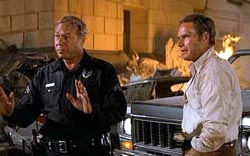

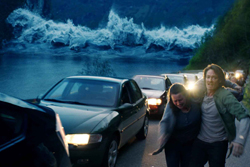
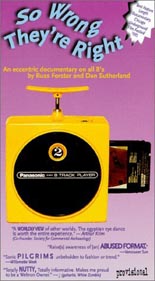
 Before covering the subculture of cover bands in 2002’s little-seen
Before covering the subculture of cover bands in 2002’s little-seen 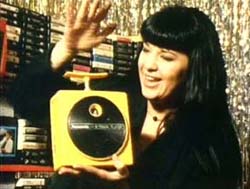
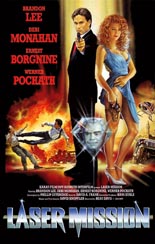
 Before hitting it big (and inadvertently buying the farm) with
Before hitting it big (and inadvertently buying the farm) with 